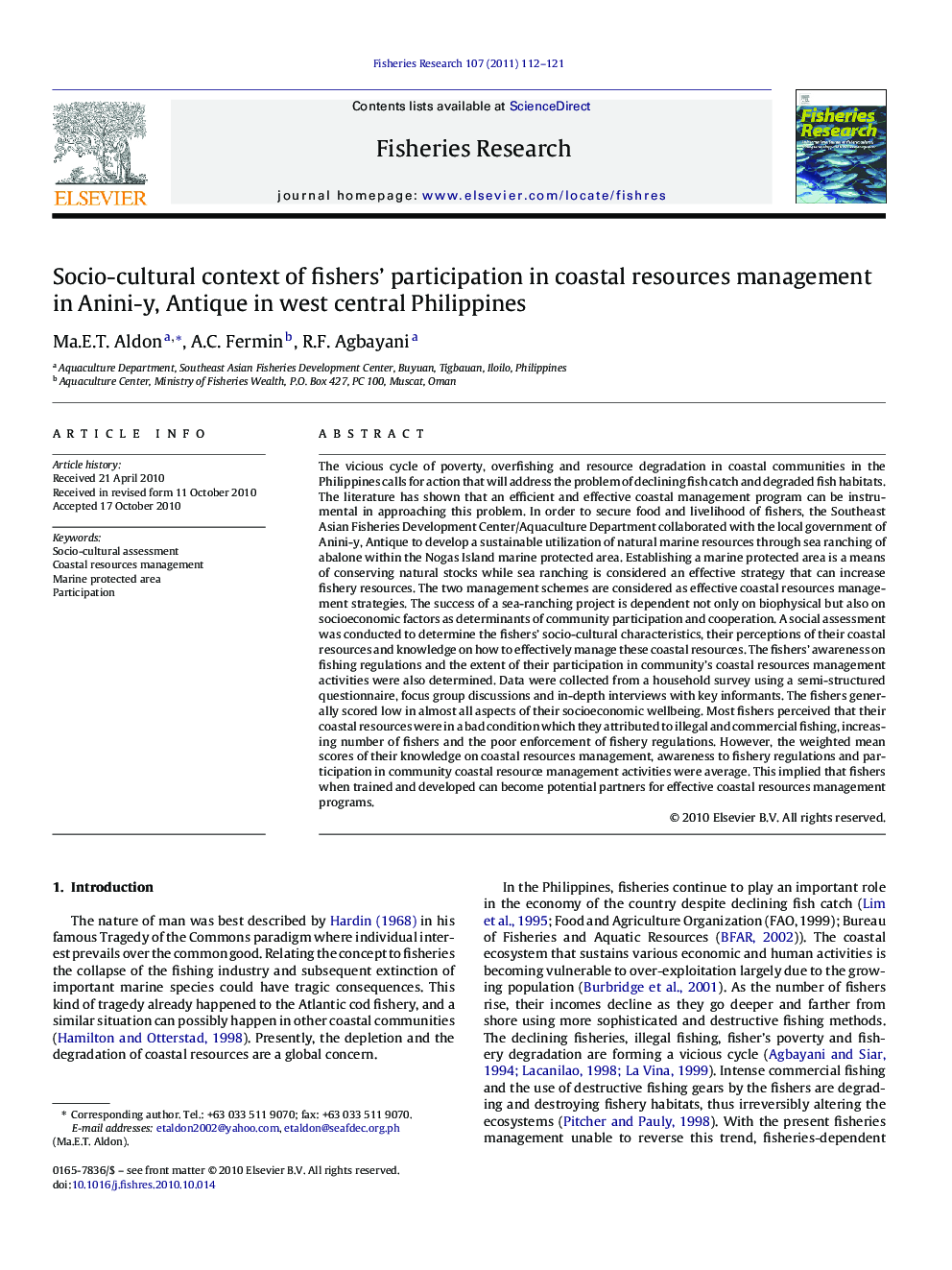| Article ID | Journal | Published Year | Pages | File Type |
|---|---|---|---|---|
| 4543834 | Fisheries Research | 2011 | 10 Pages |
The vicious cycle of poverty, overfishing and resource degradation in coastal communities in the Philippines calls for action that will address the problem of declining fish catch and degraded fish habitats. The literature has shown that an efficient and effective coastal management program can be instrumental in approaching this problem. In order to secure food and livelihood of fishers, the Southeast Asian Fisheries Development Center/Aquaculture Department collaborated with the local government of Anini-y, Antique to develop a sustainable utilization of natural marine resources through sea ranching of abalone within the Nogas Island marine protected area. Establishing a marine protected area is a means of conserving natural stocks while sea ranching is considered an effective strategy that can increase fishery resources. The two management schemes are considered as effective coastal resources management strategies. The success of a sea-ranching project is dependent not only on biophysical but also on socioeconomic factors as determinants of community participation and cooperation. A social assessment was conducted to determine the fishers’ socio-cultural characteristics, their perceptions of their coastal resources and knowledge on how to effectively manage these coastal resources. The fishers’ awareness on fishing regulations and the extent of their participation in community's coastal resources management activities were also determined. Data were collected from a household survey using a semi-structured questionnaire, focus group discussions and in-depth interviews with key informants. The fishers generally scored low in almost all aspects of their socioeconomic wellbeing. Most fishers perceived that their coastal resources were in a bad condition which they attributed to illegal and commercial fishing, increasing number of fishers and the poor enforcement of fishery regulations. However, the weighted mean scores of their knowledge on coastal resources management, awareness to fishery regulations and participation in community coastal resource management activities were average. This implied that fishers when trained and developed can become potential partners for effective coastal resources management programs.
